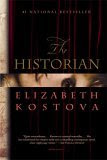 Four Reading Birds
Four Reading BirdsMy Sister's Keeper
Jodi Picoult
Washington Square Press
Another Christmas has come and gone (well, not quite -- technically this is just day four of twelve) and I have already made a dent in the new additions to my to-be-read pile. While I haven't yet opened up all of my gifts, so far I've received three books and a gift card. The best part, of course, is that I had yet to read and/or buy any of them. I'm so giddy I can hardly sit still. Well, until I get absorbed into the pages -- then you need a crowbar pry me from my seat.
First up was Jodi Picoult's My Sister's Keeper. I had heard a lot about this book and had even picked it up a few times at the bookstore before getting distracted by something else. As it turns out, I should have kept it in my basket. This was an amazing read.
Set somewhere in New England, the novel tells the story of Anna and Kate. Kate is a sixteen year old girl who, at the age of two, was diagnosed with a rare form of leukemia. Anna, her thirteen year old sister, is a genetic match who was essentially bred by her parents to act as a donor of cells, marrow and tissue. The books opens with Anna visiting a lawyer's office to become emancipated from her parents -- they want her to donate a kidney to her dying sister and she has finally had enough and wants to be able to decide what to do with her own body. I was hooked from the opening word.
Putting aside the interesting moral issues that the book raises (which I will admit rescued it from being just another schmaltzy melodrama), I was very much engaged by the narrative technique used by the author. Each chapter in the novel is narrated by a different character in media-res. There are a couple of flashback chapters that fill us in on the back-stories of the various characters, but essentially, the reader lives the drama with the protagonists. Except for Kate. We don't hear from her until the very end of the novel. I'm not going to tell you how it turns out. I will say, however, that I was surprised and genuinely sad. Three point five breaking hearts out of five.






































